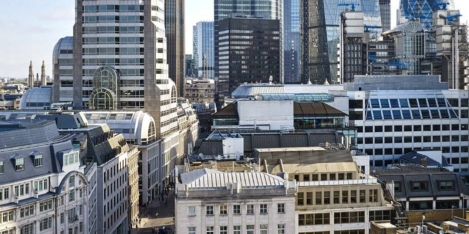July 7, 2017
Flexible and family friendly workplaces across the UK named in charity’s awards 0
 Britain’s most family friendly and flexible employers have been recognised in this year’s Top Employers for Working Families Awards. Now in their 8th year, the annual Top Employers for Working Families Special Awards from the UK’s work life balance charity cover 11 categories across a range of work life policies and practices. Four new sector-specific awards are being introduced this year for the private, public and third sectors; as well as a category for small employers. Sarah Jackson OBE, chief executive of Working Families, said: “In many ways, flexible working and family friendly working have never been more part of the bloodstream of British business. We had a record-breaking number of entries this year, showcasing a wealth of exciting approaches to creating agility in the workplace. Congratulations to all this year’s Top Employers for Working Families award winners, singled out because they offer leading flexible workplaces that support the grain of their employees’ lives. I look forward to working with them to make work work, for people, families and the economy, so that families thrive and business prospers.”
Britain’s most family friendly and flexible employers have been recognised in this year’s Top Employers for Working Families Awards. Now in their 8th year, the annual Top Employers for Working Families Special Awards from the UK’s work life balance charity cover 11 categories across a range of work life policies and practices. Four new sector-specific awards are being introduced this year for the private, public and third sectors; as well as a category for small employers. Sarah Jackson OBE, chief executive of Working Families, said: “In many ways, flexible working and family friendly working have never been more part of the bloodstream of British business. We had a record-breaking number of entries this year, showcasing a wealth of exciting approaches to creating agility in the workplace. Congratulations to all this year’s Top Employers for Working Families award winners, singled out because they offer leading flexible workplaces that support the grain of their employees’ lives. I look forward to working with them to make work work, for people, families and the economy, so that families thrive and business prospers.”











 One in three (34 percent) UK workers are dealing with anxiety, depression or stress, which is affecting their ability to carry out their day-to-day roles, claims a new report. Two in five (39 percent) have taken time off work or reduced their responsibilities because of their health, and of those, 39 percent did not feel comfortable telling their employer about the issue according to the PwC research. Nearly a quarter (23 percent) think their organisation does not take employee wellbeing seriously and more than half (54 percent) work for companies which do not offer health benefits such as counselling, health screening and subsidised gym memberships. The research suggests that Health and wellbeing has a significant impact on performance with four out of five workers (83 percent) believing that their wellbeing influences how productive they are. Pressures such as dealing with customers and clients, and long hours have the biggest impact on workplace wellbeing. The survey respondents also indicated a belief that technology can play a part in addressing health, with almost half saying they would be open to using an app to improve their wellbeing.
One in three (34 percent) UK workers are dealing with anxiety, depression or stress, which is affecting their ability to carry out their day-to-day roles, claims a new report. Two in five (39 percent) have taken time off work or reduced their responsibilities because of their health, and of those, 39 percent did not feel comfortable telling their employer about the issue according to the PwC research. Nearly a quarter (23 percent) think their organisation does not take employee wellbeing seriously and more than half (54 percent) work for companies which do not offer health benefits such as counselling, health screening and subsidised gym memberships. The research suggests that Health and wellbeing has a significant impact on performance with four out of five workers (83 percent) believing that their wellbeing influences how productive they are. Pressures such as dealing with customers and clients, and long hours have the biggest impact on workplace wellbeing. The survey respondents also indicated a belief that technology can play a part in addressing health, with almost half saying they would be open to using an app to improve their wellbeing.



 One in three (31 percent) commercial real estate investors say that the UK remains their preferred region to invest in, with a figure that has remained the same since June 2016 despite the UK deciding to leave the European Union in that period. While a quarter (24 percent) of real estate investors favour Germany as their location of choice for commercial real estate opportunities; however, according to the latest BrickVest commercial property investment barometer this represented a fall from 28 percent in June 2016. More than one in five (21 percent) selected the US, the same as last June, while France saw an increase from 13 percent in June 2016 to 15 percent in June this year. The Barometer also revealed that French, German and US investors are more favourable towards the UK since June last year. Nearly a quarter (24 percent) of French, a fifth (19 percent) of German and 23 percent of US investors suggested they prefer the UK in June this year, representing an increase from last year across the board from 22 percent, 18 percent and 20 percent respectively.
One in three (31 percent) commercial real estate investors say that the UK remains their preferred region to invest in, with a figure that has remained the same since June 2016 despite the UK deciding to leave the European Union in that period. While a quarter (24 percent) of real estate investors favour Germany as their location of choice for commercial real estate opportunities; however, according to the latest BrickVest commercial property investment barometer this represented a fall from 28 percent in June 2016. More than one in five (21 percent) selected the US, the same as last June, while France saw an increase from 13 percent in June 2016 to 15 percent in June this year. The Barometer also revealed that French, German and US investors are more favourable towards the UK since June last year. Nearly a quarter (24 percent) of French, a fifth (19 percent) of German and 23 percent of US investors suggested they prefer the UK in June this year, representing an increase from last year across the board from 22 percent, 18 percent and 20 percent respectively.



















